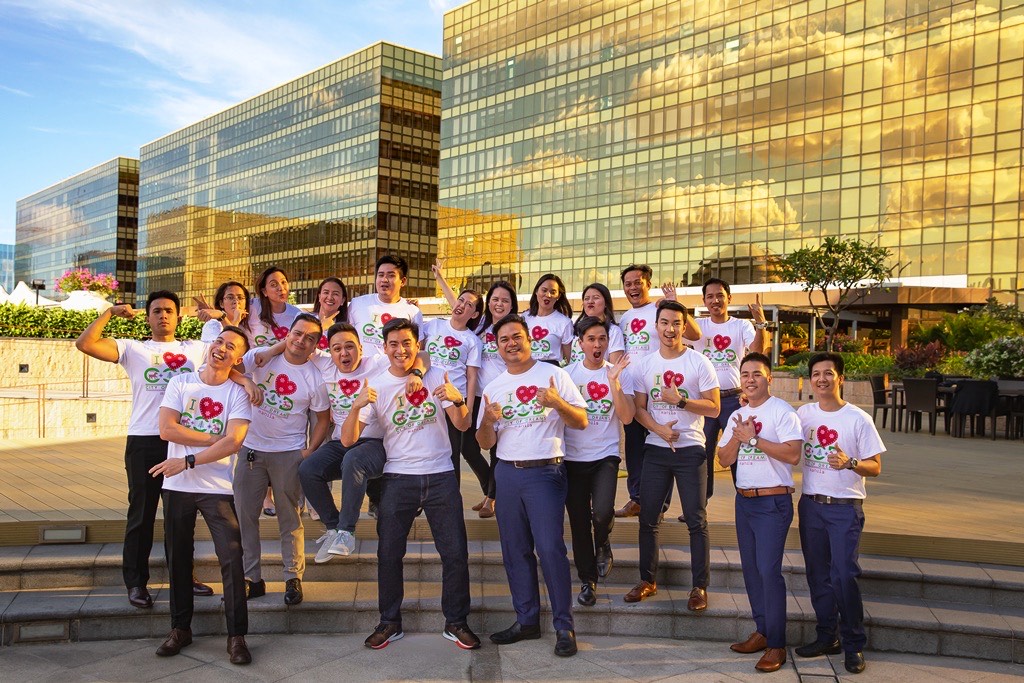
City of Dreams Manila fosters a people-centric workplace, providing opportunities for professional and personal growth, establishing various recognition programs, social and sports events, trailblazing wellness and health benefits for nearly 6,000 colleagues and their families.
In the City of Dreams Manila, the luxury integrated casino resort in Parañaque City, five-star treatment isn’t reserved just for its guests. When it comes to managing staff, “employee love” is the guiding principle of the resort, as their wellness is a core part of the company’s culture.
“We take a pretty inclusive approach to employee wellness,” says City of Dreams Manila’s senior vice president and chief operating officer Kevin Benning. “We have more of a bottom-up approach instead of top-down.”
What Benning means is that most, if not all, of the company’s employee programs are crafted based on suggestions by the employees themselves. City of Dreams does this by communicating with workers through their “Ugnayan” (the Filipino term for “connection”) Council, which is composed of individuals from different departments across the resort. These representatives meet with senior management executives once a month to relay concerns, needs, and issues raised by their colleagues.
One such concern brought up recently by the council, says Benning, was planned parenthood. To address this, he says they invited pertinent government officials to talk to employees and answer their questions surrounding the subject.
Aside from maintaining this consistent and accessible channel of communication, Benning says “visible leadership” is also very important to an establishment like City of Dreams. In an industry that requires its workers to give up time with family, especially during holidays, Benning says it makes a big difference to employees when they get to mingle regularly with their superiors. Tuesdays and Fridays are reserved for a “property walk” for senior leadership—which includes Benning—and Ugnayan Council members, wherein they simply go around the complex greeting, talking to staff.
“We make a concerted effort to just be on the floor,” Benning says. “Christmas Day, I’m walking across the floor, as well as other members of our senior leadership team, just wishing them a happy holiday. We’re a 24/7 business, and we know it’s a challenge for people to come in late nights, during holidays, particularly in this country, with Christmas being such a big deal here.”
Last Christmas Eve and Day, and New Year´s Eve and Day, employees who had to work were treated to a surprise: a raffle draw with prizes such as hotel stays, buffet vouchers, household appliances, iPhones, and Samsung Galaxy tablets.
´´´That was just something a little extra, since they had to tell their spouse and kids, ‘Merry Christmas, I have to go to work,’” says Benning. “We´re always looking at ways on how we can make this a better environment for them.”
And like any other company, City of Dreams, which is operated by Melco Resorts and Entertainment Corp. (a subsidiary of Melco Resorts and Entertainment Limited), gives outstanding employees special awards. They call it the President´s Award, and last year, nine received such recognition, along with a trophy and pin; P25,000 cash; an all-expense-paid trip to Macau for two; an overnight stay at Nuwa Manila with breakfast for two; a 60-minute massage treatment at Nuwa Spa; 10 DreamPlay weekend passes; and an intimate dinner with the property executives at Nuwa Manila’s Crystal Lounge.
City of Dreams’ “employee love” policy is complemented by another that´s essential to the business: the “do the right thing” policy.
“That’s our moral compass. Employees go through significant ‘do the right thing’ training, and that covers more of an ethics and moral 101 on how to operate as a company, as well as responsible gaming, antimoney laundering, antibribery, responsible alcohol service—and that’s not just for senior level, but for all 6,000 employees,” Benning says. “Outside of that, we have a number of leadership courses.”
This holistic approach to employee wellness, however, is made easier for the integrated resort´s management by a key factor: Filipinos’ natural flair for hospitality.
“I remember being assigned before to a different market—I won’t say where—and asking about the training calendar. One of the classes that struck me the most was called Smile Class. I asked, what is Smile Class? And the response I got was, well, it’s to teach our employees to smile,” Benning recalls.
“I don’t have to think about any of that here!” Benning continues. “Filipinos are just very happy and optimistic—and they want to be here [at work]. Nowhere else in the world is there a culture like that.”
JOIN THE IN-DEPTH DISCUSSION
business.inquirer.net